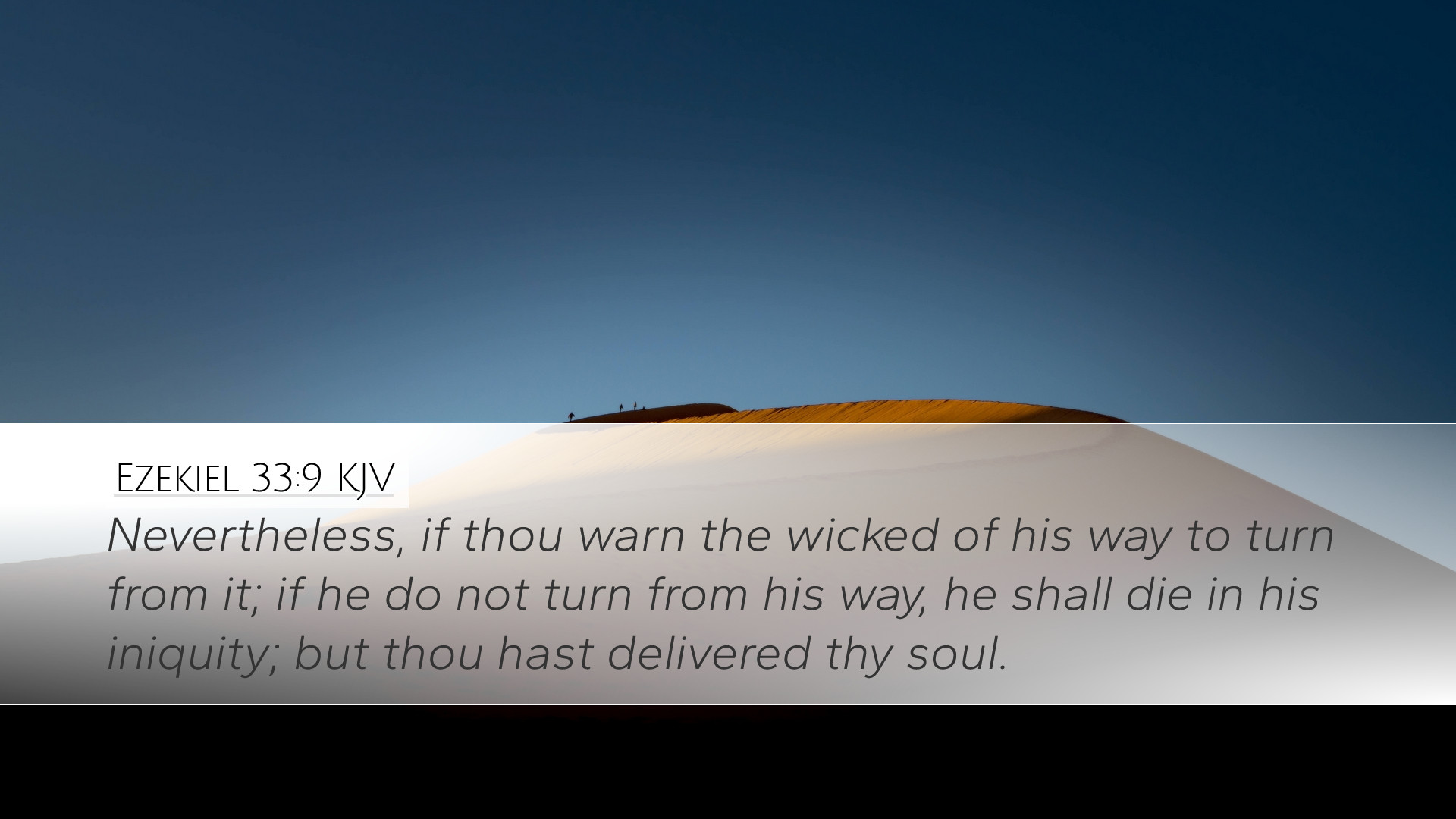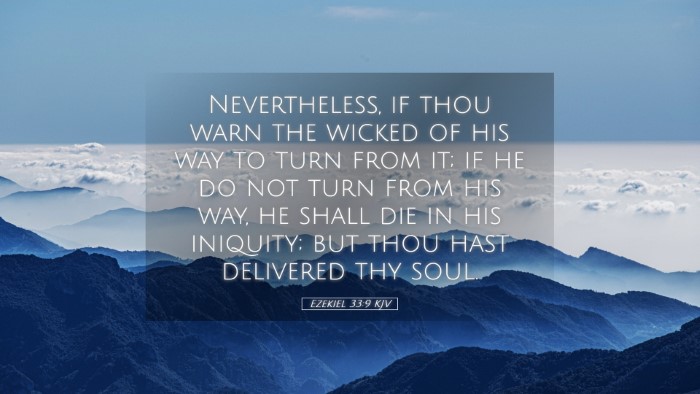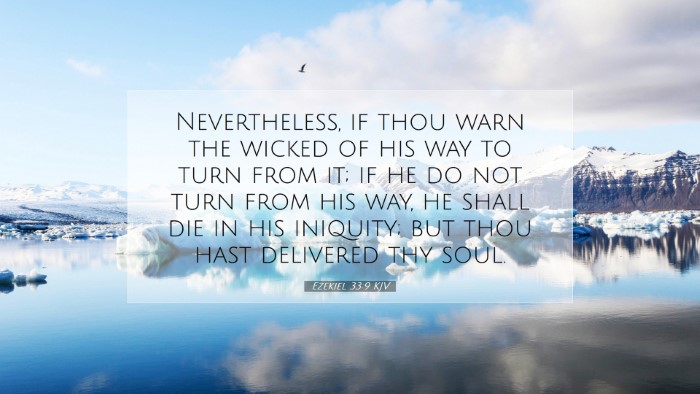Ezekiel 33:9 Commentary
Bible Verse: "Nevertheless, if you warn the wicked to turn from his way, and he does not turn from his way, he shall die in his iniquity; but you have delivered your soul."
Contextual Overview
The book of Ezekiel presents a series of oracles and prophetic messages delivered to the exiles in Babylon. Chapter 33 serves as a pivotal moment in Ezekiel's ministry, addressing the responsibilities of the watchman of Israel. The watchman is tasked with warning the people of impending danger, and his failure to fulfill this duty carries significant implications.
This verse encapsulates the essence of prophetic responsibility and the gravity of sin's consequences. It highlights God’s justice and His desire for repentance, while simultaneously clarifying the boundaries of individual accountability between the watchman and the wicked.
Insights from Matthew Henry
Matthew Henry underscores the crucial role of the watchman as one who is divinely appointed to warn others. He notes that the duty is not only to proclaim judgment but also to urge repentance. This compulsion to warn originates from God's mercy and willingness to forgive.
Henry elaborates that when the wicked are warned, they are given an opportunity to turn from their evil ways. The metaphor of the watchman conveys the seriousness of the prophetic calling, emphasizing that blood would be on the watchman’s hands if he failed to speak. The responsibility does not absolve the wicked of their choices; should they not heed the warning, they remain culpable for their actions.
Albert Barnes's Perspective
Albert Barnes provides a theological angle, emphasizing the notion of moral agency. He emphasizes the importance of personal accountability, stating that though the watchman fulfills his duty, each individual bears the responsibility for their decisions. The watchman delivers the needed message, yet the ultimate choice remains with the sinner.
Barnes also highlights that the act of warning is itself a form of grace—God's way of calling the wicked away from destruction. The phrase "you have delivered your soul" indicates that fulfilling one's duty as a watchman is pivotal not only for the people but for the watchman’s spiritual wellbeing as well.
Adam Clarke's Commentary
Adam Clarke expounds on the sociological elements found in this verse, detailing the implications of the watchman’s role in both community and spiritual life. He points out that this model illustrates God’s governance over humanity, emphasizing His desire for sinners to repent and be spared from judgment.
Clarke remarks on the binding nature of this covenant between God and the watchman. Should the wicked choose to ignore the warning, they are ultimately responsible, which demonstrates the principle of free will. Thus, each person's eternal fate hinges on their response to God's call through the warning of their appointed messenger.
Theological Implications
This passage holds profound implications for pastoral ministry and the obligations of church leaders. It serves not only as a poignant reminder of the consequences of neglecting the call to preach repentance but also as an assurance that God’s grace provides opportunities for turnaround.
- Accountability: The watchman is accountable for proclaiming God’s message, which invites a reflection on the accountability of church leaders today.
- Responsibility of Individual Choice: The emphasis on personal decision-making is critical in understanding human agency in relation to divine sovereignty.
- God's Desire for Repentance: This verse encapsulates God's longing for sinners to return to Him, showcasing His character as loving and just.
Applications for Ministry
For pastors and church leaders, this scripture serves as a catalyst for self-examination and rejuvenation in their call to ministry. There is a clear implication that the proclamation of God's warnings and love is fundamental to the work of a pastor.
Likewise, students of theology and scripture must grapple with the duality of responsibility: understanding both the urgency of the gospel message and the implications of personal decisions in response to God's call. In this balance lies the essence of prophetic ministry.
Conclusion
Ezekiel 33:9 serves as a microcosm of the larger theological themes present in the scriptures: accountability, free will, and God's unyielding desire for the redemption of His people. As such, this verse challenges contemporary readers—both leaders and laypersons—to not only reflect on their own lives but also on their calling to be messengers of God’s truth in a world needing divine clarity.


